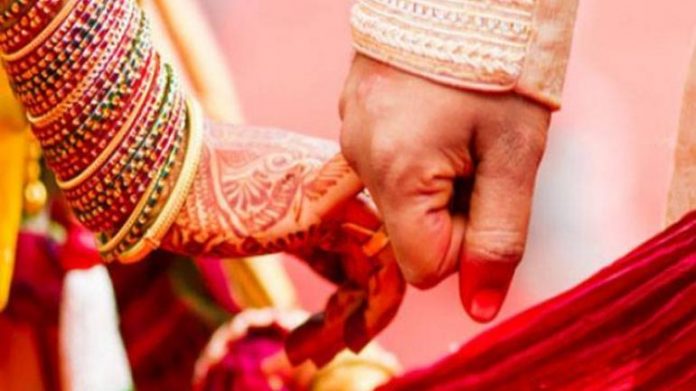This article is written by Oishika Banerji of Amity Law School, Kolkata. This article provides an analysis of the ground of insanity under the Hindu Marriage Act, 1955.
Table of Contents
Introduction
Marriage is an important social institution in India. Governed by personal laws, marriage forms the base of a social structure. The Hindu Marriage Act, 1955 being a codified legislation provides a backbone to Hindu marriages. The legislation classifies insanity, or mental disorder as the only disability ground for annulment of marriage under Section 5(ii), or divorce as provided in Section 13 of the Act. These two provisions are therefore often subjected to debates and discussions as it reinforces two stigmas of the Indian society which are:
- Isolating individuals suffering from mental disorders from society at large on grounds that they possess a threat to society with their actions.
- India has been home to patriarchy with men of a family being the decision-makers. Provisions on mental disorders can therefore be misused to suppress the women of the family further.
This article sought to highlight the two important provisions of the Hindu Marriage Act, 1955 concerning mental disorders along with their effect on society and also throw light on judicial interpretation of these provisions.
The ground of insanity under the Hindu Marriage Act, 1955
The Hindu Marriage Act, 1955 has accepted insanity as a ground for declaring a Hindu marriage as a voidable marriage under Section 12 of the Act and also as a valid ground for divorce provided under Section 13(1)(iii). Voidable marriages as provided in Section 12, are those marriages that can be annulled by a competent court by means of a decree of nullity only if the marriage falls under the categories provided in Section 12 of the legislation.
Insanity is a prerequisite condition for a valid marriage under Section 5
Section 5 of the Hindu Marriage Act, 1955 lays down conditions for a valid Hindu marriage. The second condition of this provision provides three parameters, one of which should be possessed by neither of the parties at the time of their marriage. They are:
- Parties being restricted by unsoundness of mind to provide a valid consent; or
- Parties are capable of providing valid consent but are suffering from mental disorders which can prohibit them from living a healthy married life, and affect children procreation; or
- Parties are subjected to frequent insanity attacks.
Section 5(ii) read with Section 12(1)(b) of the Act of 1955 reveals that if the second condition of Section 5 is contravened, then such marriages being subjected to Section 12 will be declared as voidable by nature.
If this condition is analyzed, there arise three different problems that will keep arising until Section 5(ii) is not subjected to logical modification or amendments. The issues have been listed as follows:
- The scope of Section 5(ii) is restricted only to one disability that is a mental disorder preventing a valid marriage from taking place. None of the terms used in this condition such as “unsoundness of mind”, “mental disorder”, “insanity” are provided with an adequate explanation, leaving behind scope for ambiguity.
- The second parameter laid down by Section 5(ii) reflects the misconception that people in general have regarding the relationship between infertility and mental disorder. Scientifically speaking, there appears no such cause and effect relationship between impotence and mental instability. Any legislation supporting superstition and misconception existing among people at large can be fatal.
- Drawing from the second issue comes the third that concerns the objective behind the marriage of two individuals. The second parameter makes it clear that the essence of marriage exists in the procreation of children. This parameter is further supported by Section 12(1)(a) which provides impotence as a ground for voidable marriages. It will be correct to say that individuals irrespective of their gender face discrimination due to the existence of this provision.
A major loophole exists in Section 12(1)(c) of the Hindu Marriage Act, 1955 which talks about the abrogation of marriage if the consent of the parties is obtained by force or by fraudulent manner. This circumstance can be misused by the petitioner by means of claiming that hiding of mental disorder prior to marriage falls within the ambit of “material fact” and thereby seek annulment of marriage on the basis of fraud. Observation by the Supreme Court in the case of R. Lakshmi Narayan vs. Santhi (2001) provides some light of hope as it stated that in order to label a wife as unfit for a valid Hindu marriage on grounds of mental disability and reproducing children, establishing the gravity of the ailment she has been suffering from which makes it impossible for to live normally, stands indispensable.
The Delhi High Court in the case of Om Prakash Gupta vs Puspa Kumari (1969) took into account two valid questions of law in relation to Section 5(ii) of the Hindu Marriage Act, 1955 which were:
- The meaning of the term “idiot” within Section 5(ii);
- Determining what degree of being an idiot is sufficient to be present in a spouse that will be responsible to nullify the marriage.
Upholding the decision of the lower court to dismiss the petition for annulment of marriage under Section 12 (1)(b), the High Court held that due to lack of sufficient evidence showcasing the wife to be an idiot at the time of her marriage with the appellant, she cannot be categorized as an idiot under Section 5(ii).
Insanity as a ground for divorce under Section 13
Section 13 of the Hindu Marriage Act, 1955 lays down the concept and scope of divorce in a Hindu marriage. Clause 1 sub-clause (iii) of the provision provides mental disorder as a valid ground for presenting a petition before the appropriate court for the purpose of filing a divorce. The provision lists out two terms with their respective definitions.
- Under the broad term of mental disorder, mental illness, psychopathic disorder, schizophrenia, and incomplete development of mind have been included;
- The term psychopathic disorder has been further classified into persistent disorder, abnormal aggression, and seriously irresponsible conduct.
The Apex Court had interpreted Section 13(1)(iii) in the notable case of Ram Narain Gupta vs Smt. Rameshwari Gupta (1988). The Court opined that the provision does not in any way attach significance to mental disorder belonging to any degree to be a strong ground to dissolve a marriage. Instead, the burden of proof of showing the presence of a requisite degree of mental instability lies on the spouse who claims such mental illness in the other spouse.
The Supreme Court of India’s noteworthy decision in the case of Kollam Chandra Sekhar vs Kollam Padma Latha (2013) has brought in a significant development in the age-old Hindu marriage legislation of India. Observing that a man cannot divorce his wife on the grounds of schizophrenia, the Apex Court with a bench of Justices G.S. Singhvi and V. Gopala Gowda stressed the importance of determining the degree of mental disorder in these kinds of cases. The Court while dismissing the appeal of the husband in this case ordered him to provide correct treatment to his wife if he feels that she requires the same. Instead of granting a decree for divorce under Section 13, the Court allowed the petition for restitution of conjugal rights provided under Section 9 of the Act of 1955.
Following the footsteps of the Supreme Court, the Andhra Pradesh High Court made a remarkable observation in the case Tallam Suresh Babu vs T.Swetha Rani (2018). The Court while hearing a divorce matter which was filed by the appellant, the husband on the ground that his wife, the respondent was diagnosed with schizophrenia and therefore the former wanted a divorce from the latter on the basis of Section 13(1)(iii), Section 5(ii), and Section 12 of the Hindu Marriage Act, 1955, took into account that only a few numbers of schizophrenic patients become aggressive and the same occurs occasionally. The Court in this case provided a clear distinction between Section 12(1)(b), and Section 13(1)(iii) dealing with voidable marriage if provision Section 5(ii) contravened and divorce on the ground of mental disorder respectively. The Court pointed that:
- In order to file a case under Section 12(1)(b), the person doing so has to either prove that the presence of unsoundness of mind of the other party hinders valid consent of that party or the mental disorder of the party is such that the same will affect the marriage in the long run and procreation of children will be affected as well.
- For a case to fall within the ambit of Section 13(1)(iii), it will be sufficient for the petitioner of the case to prove that the respondent has an unsound mind which is incurable or has been subjected to frequent insanity attacks which will make the lives for both the petitioner and the respondent difficult.
Recognizing that all mental disabilities will not be categorized as grounds for divorce, the Court held that schizophrenia will not be a valid ground for divorce in this case.
In Hemali Bindesh Kelaiya v. Bindesh Jayantilal Kelaiya (2014), the Bombay High Court while hearing an appeal filed by the wife of a man who suffered from recurrent insanity attacks after their marriage and as a result of which use to abuse and harass his wife, took into consideration the question of law as to whether a Hindu marriage between two parties can be dissolved by a divorce decree under Section 13(1)(iii) on the ground that one spouse suffers from mental illness. The respondent, in this case, had contended that he was not a patient of mental illness; instead, he was suffering from sleeplessness and stress whose medication was going on. After taking into account the evidence presented and the arguments provided, the Court concluded that the appellate had failed to prove her point and therefore no decree of divorce shall be passed.
The calling for amendments in the Hindu Marriage Act, 1955 in relation to the ground of insanity
The Marriage Laws (Amendment) Act, 1976 was responsible for changing the language of Section 5(ii) from “neither party is an idiot or a lunatic” to that of the present wordings. This was to expand the scope of the condition laid down under Section 5(ii). Further, the Marriage Laws (Amendment) Act, 1999 erased “Recurrent attacks of epilepsy” as a ground for marriage disqualification. The Protection of Women from Domestic Violence Act, 2005 is one such legislation that has been formulated to ensure effective safeguarding of women from any kind of violence arising from her family or any other related circumstances. But all these amendments and modifications come with their own detriments. Also, these changes do not delete the fact that the core legislation governing Hindu marriages is left to overcome its flaws. The major reasons behind the need for amendments in the provisions of insanity of the Hindu Marriage Act, 1955 are provided hereunder;
- Classifying insanity as a ground for divorce, or voidable marriage as provided under the Act of 1955 is based on age-old beliefs and is a product of a patriarchal mindset. The need for changing such provisions is to add reasons to on what grounds insanity can be a ground for annulment of marriage or for seeking a divorce.
- There arises a need to delete stigmatizing words such as “procreation of children” from the statute in order to let the legislation achieve its goals. With the law being a dynamic tool to ensure social justice, it must eliminate the factors that become a hurdle in the administration of justice.
- Preconceived notions regarding mental disorders must be buried to befriend the future that ensures individuals with mental illness have similar rights when it comes to marriage as individuals not falling within the category of insanity. It should not be a ground for disability to nullify a Hindu marriage.
Conclusion
Taking into account the development of medical science in our country which is sufficient enough to cure mental disorders, it will be correct to state that the legislature must consider the up-gradation of the existing provisions concerning mental illness. Discrimination on grounds of insanity is unjust under Articles 14 and 21 of the Indian Constitution and should be erased from the Hindu marriage legislation as soon as possible to ensure fairness, justness, and equality for both parties in a marriage.
References
- https://www.ncbi.nlm.nih.gov/pmc/articles/PMC4711231/.
- https://www.researchgate.net/publication/272838008_Gender_mental_illness_and_the_Hindu_Marriage_Act_1955.
- https://www.lawyersclubindia.com/articles/borderline-personality-disorders-and-insanity-under-the-hindu-marriage-act-1955–5584.asp.
LawSikho has created a telegram group for exchanging legal knowledge, referrals, and various opportunities. You can click on this link and join:
 Serato DJ Crack 2025Serato DJ PRO Crack
Serato DJ Crack 2025Serato DJ PRO Crack











 Allow notifications
Allow notifications


